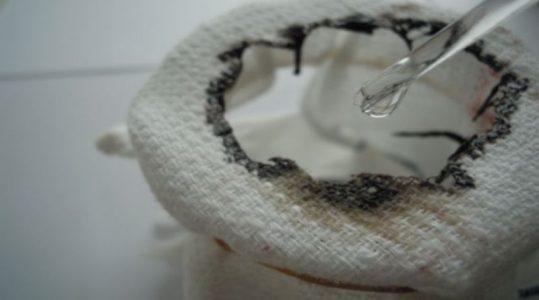
Chemicals found in terrorist bombs to face tougher rules
Chemicals like sulphuric acid have been added to the list of banned substances which could be used by terrorists to make bombs, the EU Parliament and Council have informally agreed.
The move is part of the EU’s updating and tightening on the sale and use of certain chemicals which have been found in 40% of homemade explosives used in previous terrorist attacks in Europe.
Sulphuric acid will be one of them and this was found mixed to produce TATP compound found in devices used in Paris in 2015, Brussels 2016 and Manchester in 2017.
Whereas professionals using the chemicals will not be impacted by the move, the public will need a special licence to buy them.
These measures will also be mirrored through regulations governing the rules of sale and suspicious transactions in the online marketplace.
Responding to the news of the informal agreement, the Rapporteur Andrejs Mamikins (S&D, LV) explained that, ‘Stronger regulation of marketing and use of explosives precursors are essential steps in making Europe a safer place.
Preventing bomb-making, illicit trade in explosives (including on the “dark web”), as well as harmonisation of marketing in the EU, were our priorities in the negotiations. The new rules ensure clearer definitions, stricter control measures and better information-sharing along the supply chain’.
Source: Newsbook





